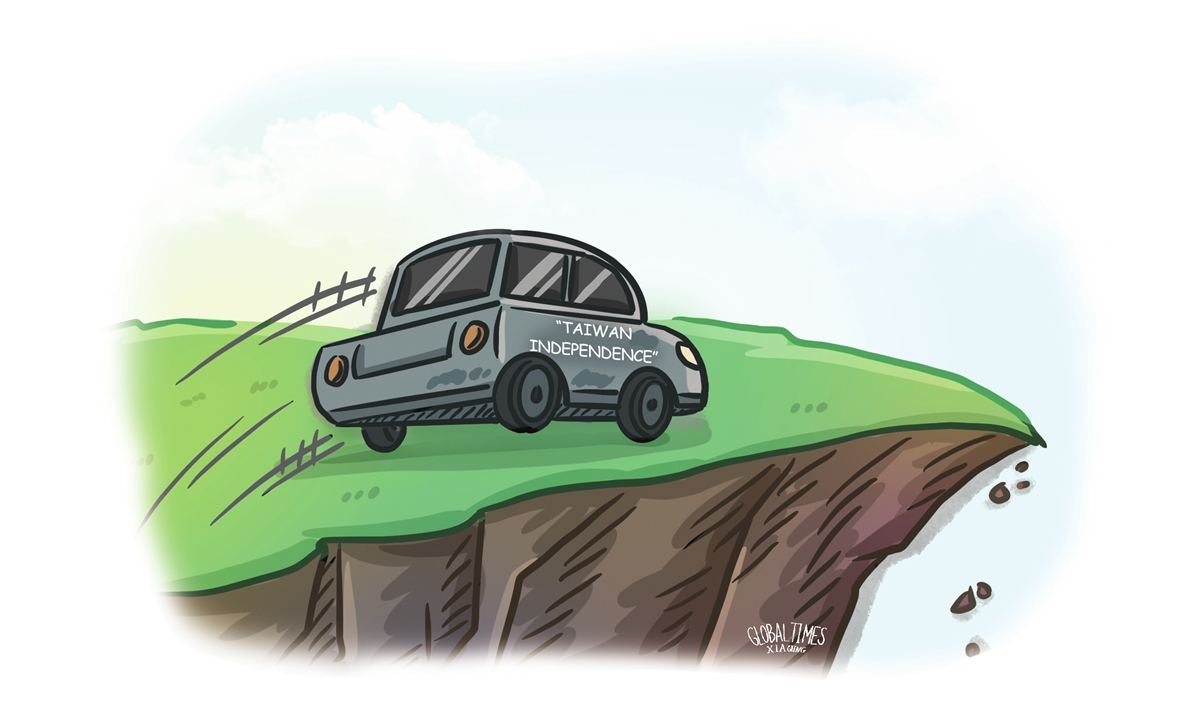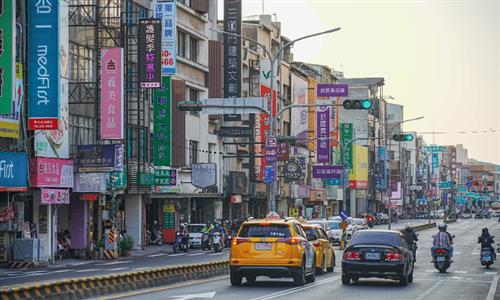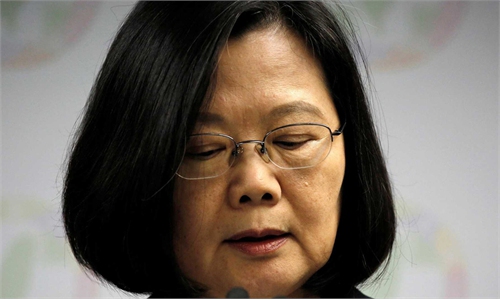What is DPP anxious about hearing Musk withdrawing factories?: Global Times editorial

Illustration: Xia Qing/GT
According to sources cited by Reuters recently, US entrepreneur Elon Musk has reportedly requested that the SpaceX suppliers in China's Taiwan region transfer manufacturing off the island due to "geopolitical considerations." While Musk has not confirmed the authenticity of this information, the report has continued to make waves in Taiwan, with many netizens speculating whether this signals industrial relocation or kicking Taiwan out of the supply chain. In this atmosphere, the Democratic Progressive Party (DPP) authority's anxiety over being abandoned has deepened.
Many people tend to believe the report has a certain degree of credibility. One reason for this is that Musk, as someone well-versed in the Taiwan question, has previously voiced some blunt but reasonable opinions that often contradict the views of some in the West. For instance, Musk has repeatedly stated in Western media interviews that the Taiwan region is "an integral part of China," and that "reunification is 100 percent going to happen." He even suggested that China set up a "special administrative zone" for the Taiwan region to avoid a cross-Straits conflict. Musk's previous remarks on Taiwan actually reflect the general view that Taiwan is part of China and that cross-Straits reunification is an inevitable trend. They also reflect a broader desire within the business community to avoid being caught up in a potential conflict across the Taiwan Straits.
However, the DPP, which has often sharply criticized Musk in the past, has been unusually low-key this time, revealing their growing nervousness. Since the US election campaign entered its final stretch, talk of Taiwan possibly being abandoned has been circulating in the island. Despite Lai Ching-te and the DPP trying to appear calm and repeatedly making assurances that relations between the island of Taiwan and the US will remain "strong" and urging people not to be afraid, the more they insist, the more it reveals their unease.
A conflict in the Taiwan Straits is certainly not inevitable. The Chinese mainland has consistently upheld peaceful reunification as its fundamental approach to resolving the Taiwan question. If the DPP does not try to seek "Taiwan independence" by force and by relying on the US, what is there to be anxious about? In other words, as long as they hold onto these ideas, they will continue to live in the nightmare of being abandoned.
Will the US abandon Taiwan? Fundamentally, this is a matter of time and circumstances and will not shift due to changes in US politics or the personal will of certain politicians in the US and Taiwan. Over the years, the DPP has been willing to sell out Taiwan's interests to pledge allegiance to the US. This is fundamentally because they know very well that, without any benefit to the US, America would never "stand with them." Some even say, "the DPP is destined to negotiate with the US on its knees." Singapore's former foreign minister George Yeo previously stated that in a war against the Chinese mainland, "Taiwan is only a piece on the chessboard" and will be sacrificed if needed. The world sees this very clearly.
On November 8, parties in Taiwan island reached a consensus on the long-delayed "general budget" for next year. Some insiders revealed that the DPP authorities allowed the "general budget" to pass at this time to make room for paying "protection fees" to the new US administration next year. During the past two US administrations, more than $28 billion in arms sales to Taiwan were approved within eight years, with the DPP authorities accepting each sale without question. This expenditure is unlikely to decrease in the future. Coupled with the potential pressure to raise Taiwan's "defense budget" to 10 percent of its GDP and the costs associated with relocating chip companies in Taiwan to the US, the DPP's strategy of "relying on the US for independence" has become an increasingly unbearable burden. Some within the island are questioning whether spending hundreds of billions of dollars to buy a pile of scrap metal is essentially a "pig butchering scam."
Relying on the US only harms Taiwan, and seeking independence through force is destined to be a dead end. The day that some in the DPP long for, when they can pursue "Taiwan independence" without consequences and still live well, will never come. It's increasingly clear in the current situation whether "Taiwan independence" brings safety and development to Taiwan or merely turns it into a disposable bargaining chip or a long-term cash cow. More people are coming to recognize the true harm of "Taiwan independence." The mainstream sentiment in Taiwan for peace over war, growth over decline, connection over separation, and cooperation over confrontation is becoming ever stronger.
For "Taiwan independence" separatists, whether they will be "kicked out of the game" is not a "yes or no" question - the answer is definite. The only question is when and in what manner it will happen. The mainland's efforts to oppose "Taiwan independence" and promote unification are being advanced comprehensively and steadily. This year, two exercises held by the People's Liberation Army, "Joint Sword-2024A" and "Joint Sword-2024B," serve as clear signals to the DPP authorities. Willingly playing the role of a pawn means facing an inevitable outcome as a discarded piece, and "Taiwan independence" separatists should harbor no illusions about this.



